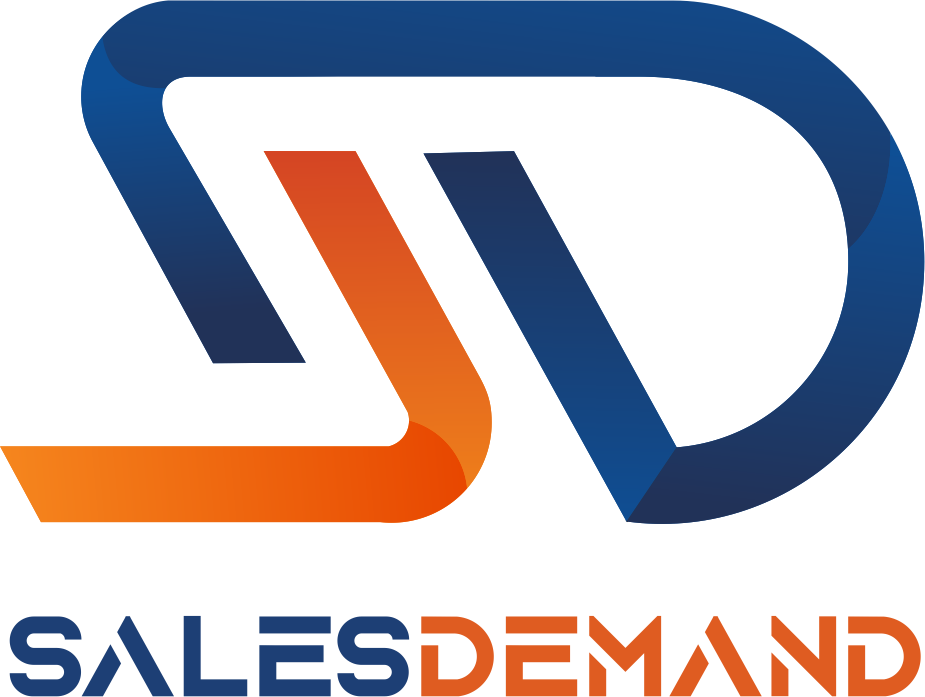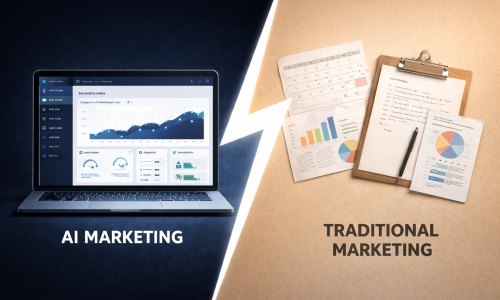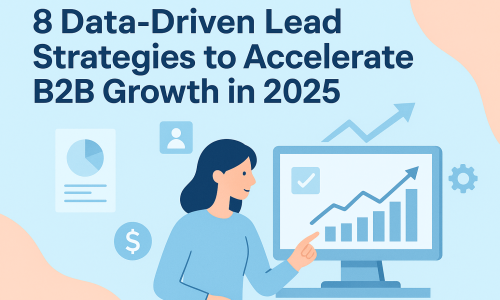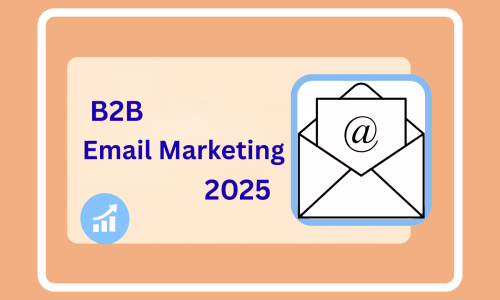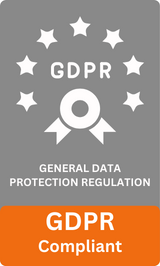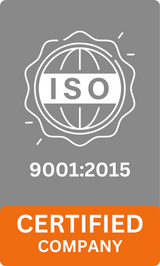
“Artificial intelligence is the new electricity.”
– Andrew Ng
Imagine a world where your marketing decisions are smarter, more efficient, and personalized—every single time. That’s the power of artificial intelligence (AI) in B2B marketing. In recent years, AI has become more than just a buzzword; it’s a game-changing tool that’s reshaping how businesses engage with customers, streamline operations, and drive revenue.
In this blog, we’ll dive into how AI is transforming B2B marketing, why adopting AI solutions is no longer optional, and how marketers can leverage AI to stay ahead in a competitive market. From automating mundane tasks to delivering hyper-personalized experiences, AI is helping businesses make smarter choices, build stronger client relationships, and scale with greater precision.
Table of Contents
ToggleThe Role of AI in B2B Marketing: A Game Changer
AI has redefined the way B2B marketing functions, empowering businesses to optimize strategies that were once time-consuming and resource-heavy. Let’s explore the key ways in which AI is reshaping B2B marketing:
1# Predictive Analytics for Smarter Decision-Making
Predictive analytics, powered by AI, enables B2B marketers to forecast future trends, customer behaviors, and market conditions. By leveraging AI algorithms that analyze past data, businesses can predict potential customer actions, identify emerging opportunities, and prevent challenges before they arise. This allows for more informed decision-making and targeted marketing campaigns.
2# Personalized Customer Experiences
Personalization is no longer a luxury—it’s a necessity. With AI tools like machine learning (ML), businesses can offer tailored experiences to their B2B clients. By analyzing customer behavior, preferences, and past interactions, AI can create personalized content, product recommendations, and offers, all of which drive higher engagement and conversion rates.
3# Enhanced Lead Generation and Scoring
AI plays a crucial role in identifying and nurturing high-quality leads. With intelligent algorithms, AI can analyze vast amounts of data to determine which leads are most likely to convert, significantly improving lead scoring accuracy. AI can also automate lead qualification processes, freeing up marketers to focus on high-value prospects while enhancing the overall efficiency of the sales pipeline.
4# Chatbots and Conversational AI for Real-Time Engagement
B2B businesses are increasingly adopting AI-powered chatbots and virtual assistants to improve customer engagement. These tools can handle customer inquiries in real time, provide personalized recommendations, and even guide customers through the purchasing process. As a result, B2B companies are seeing increased customer satisfaction and improved lead conversion rates.
5# Streamlining Content Creation
Content marketing is a crucial element of B2B strategies, and AI has made it easier to generate high-quality content faster. AI-powered tools can assist in writing blog posts, social media updates, email copy, and more. Furthermore, AI can analyze the performance of past content to suggest improvements and identify trending topics, ensuring that your content resonates with your target audience.
6# Data-Driven Insights and Reporting
Data is the backbone of any successful marketing strategy, and AI helps businesses turn raw data into actionable insights. AI-powered analytics tools can sift through vast amounts of data to uncover trends, customer preferences, and performance metrics that might otherwise go unnoticed. This information helps businesses fine-tune their marketing efforts, track ROI, and make data-driven decisions.
7# Automation of Repetitive Tasks
AI allows marketers to automate repetitive tasks such as email marketing, social media posting, and reporting. By using AI-powered tools like customer relationship management (CRM) systems and marketing automation platforms, businesses can reduce the time spent on manual processes and allocate resources to more strategic activities.
8# AI-Powered ABM (Account-Based Marketing)
Account-based marketing has gained significant traction in B2B marketing, and AI can enhance this strategy by providing deeper insights into target accounts. With AI, businesses can analyze account behaviors, predict their needs, and personalize outreach. This ensures that marketing efforts are laser-focused on high-value accounts, leading to better engagement and higher conversion rates.
9# Social Media Monitoring and Sentiment Analysis
AI-powered sentiment analysis tools can monitor social media platforms to gauge public perception of a brand, product, or service. By analyzing sentiment and engagement metrics, AI helps marketers understand how their target audience feels about their brand, enabling them to adjust their strategies accordingly.
How B2B Marketers Can Leverage AI for Maximum Impact
While AI presents numerous opportunities, it’s crucial for B2B marketers to adopt a strategic approach to maximize its potential. Here are some best practices for integrating AI into your marketing strategy:
1# Invest in the Right AI Tools
Not all AI tools are created equal, so it’s important to choose those that align with your specific business needs. Whether it’s predictive analytics, chatbots, or content creation tools, the right AI solutions can help you achieve your marketing goals more effectively.
2# Align AI with Customer Journey Mapping
Understanding the customer journey is critical for any marketing strategy. AI can enhance this process by providing insights into how customers engage with your brand at each touchpoint. Mapping these interactions allows B2B marketers to design personalized campaigns that address customer pain points and drive conversions.
3# Continuous Monitoring and Optimization
AI systems are constantly evolving, and to get the most out of them, marketers should continuously monitor performance and optimize campaigns. AI allows for real-time tracking, so marketers can adjust strategies based on the data generated. This iterative approach ensures sustained success.
4# Collaborate Across Teams
AI in B2B marketing isn’t limited to the marketing department—it should involve collaboration across sales, customer service, and other relevant teams. By sharing data and insights, businesses can create a unified customer experience that enhances brand loyalty and drives growth.
5# Keep the Human Element
While AI can automate many tasks, it’s important to remember that human creativity, empathy, and intuition are irreplaceable. The best results come when AI and human expertise work together to create marketing strategies that are both data-driven and customer-centric.
Challenges of Implementing AI in B2B Marketing
While AI offers numerous advantages, the implementation of AI in B2B marketing does come with challenges. Here are a few common obstacles businesses may face:
- Data Quality: AI relies heavily on data, so poor-quality data can result in inaccurate insights. Businesses must ensure they collect high-quality, accurate data for AI tools to function optimally.
- Cost of Implementation: High-quality AI tools and technologies can be expensive, making it challenging for smaller businesses to adopt them. However, as technology evolves, the cost of AI solutions is expected to decrease, making them more accessible.
- Integration with Existing Systems: Integrating AI with existing CRM and marketing automation systems can be a complex task. Businesses must invest time and resources to ensure that AI tools seamlessly integrate with their current tech stack.
- Data Privacy and Security: With AI collecting and analyzing vast amounts of data, businesses must prioritize data privacy and security. Adhering to regulations like GDPR and ensuring secure data handling is crucial to avoid legal and reputational risks.
Conclusion:
AI is not just a passing trend; it’s the future of B2B marketing. By leveraging AI-powered tools, businesses can streamline operations, enhance customer engagement, and make smarter, data-driven decisions. While the journey to AI adoption may come with challenges, the long-term benefits far outweigh the initial hurdles.
For B2B marketers, embracing AI is no longer optional—it’s essential for staying competitive in today’s fast-paced digital landscape. As technology continues to advance, the opportunities for innovation and growth will only expand, allowing businesses to deliver even more personalized, efficient, and impactful marketing strategies.
By adopting AI thoughtfully and strategically, B2B companies can unlock new levels of growth, drive more meaningful customer relationships, and ultimately thrive in a data-driven world.
FAQs
- How does AI improve lead generation in B2B marketing?
AI enhances lead generation by analyzing data to identify high-quality leads, automating lead scoring, and streamlining qualification processes, leading to higher conversion rates. - Can AI replace human marketers in B2B marketing?
AI can automate many tasks, but human expertise, creativity, and emotional intelligence are irreplaceable. AI should complement human efforts, not replace them. - What are some examples of AI tools used in B2B marketing?
Examples of AI tools in B2B marketing include chatbots, predictive analytics platforms, content creation software, AI-powered CRM systems, and sentiment analysis tools. - Is AI expensive to implement for small businesses?
While AI tools can be costly, the prices are gradually decreasing as technology advances. Many AI solutions now offer scalable pricing options that cater to businesses of all sizes. - What role does AI play in account-based marketing (ABM)?
AI enhances ABM by providing deeper insights into target accounts, allowing for more personalized outreach, improved engagement, and better conversion rates.
